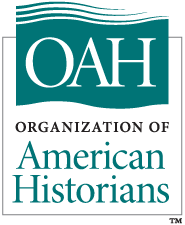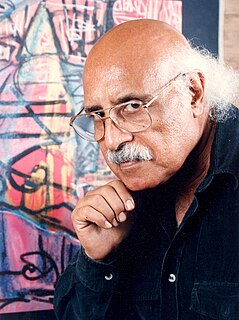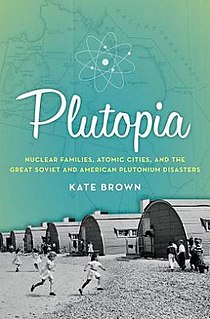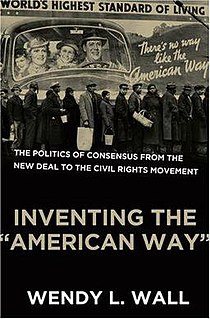Related Research Articles

The Organization of American Historians (OAH), formerly known as the Mississippi Valley Historical Association, is the largest professional society dedicated to the teaching and study of American history. OAH's members in the U.S. and abroad include college and university professors; historians, students; precollegiate teachers; archivists, museum curators, and other public historians; and a variety of scholars employed in government and the private sector. The OAH publishes the Journal of American History. Among its various programs, OAH conducts an annual conference each spring, and has a robust speaker bureau—the OAH Distinguished Lectureship Program.
Avery Odelle Craven was an American historian who wrote extensively about the nineteenth-century United States, the American Civil War and Congressional Reconstruction from a then-revisionist viewpoint sympathetic to the Lost Cause as well as democratic failings during his own lifetime.

Edward Lynn "Ed" Ayers is an American historian, professor, administrator, and university president. In July 2013, he was awarded the National Humanities Medal by President Barack Obama at a White House ceremony for Ayers's commitment “to making our history as widely available and accessible as possible." He served as the president of the Organization of American Historians in 2017–18.
Myles W. Jackson is currently the inaugural Albers-Schönberg Professor in the History of Science at the Institute for Advanced Study in Princeton, New Jersey and lecturer with the rank of professor of history at Princeton University. He was the inaugural Albert Gallatin Research Excellence Professor of the History of Science at New York University-Gallatin, Professor of History of the Faculty of Arts and Science of New York University, Professor of the Division of Medical Bioethics of NYU-Langone School of Medicine, Faculty Affiliate of the Engelberg Center on Innovation Law and Policy, NYU School of Law, and Director of Science and Society of the College of Arts and Science at NYU. He was also the inaugural Dibner Family Professor of the History and Philosophy of Science and Technology at Polytechnic Institute of New York University from 2007 to 2012. The chair is named after Bern Dibner, an electrical engineer, industrialist, historian of science and technology and alumnus of Polytechnic Institute of Brooklyn.
The Erik Barnouw Award—also known as the OAH Erik Barnouw Award—is named after the late Erik Barnouw, a Columbia University historian and professor who was a specialist in mass media. The OAH -- Organization of American Historians -- gives one or two awards annually to recognize excellent programs, from mass media or documentary films, that relate to American history or further its study. The award was first presented in 1983.

Hussein El Gebaly (Arabic:حسين الجبالي ar:حسين الجبالي) was an Egyptian artist.
The Merle Curti Award is awarded annually by the Organization of American Historians for the best book in American social and/or American intellectual history. A committee of 5 members of the Organization of American Historians chooses the winners from published monographs submitted by the author(s). Committee members represent the entire spectrum of American history and serve a one-year term. Beginning with the awards of 2004, the Committee may select 1 book "winner" in American intellectual history, 1 book "winner" in American social history, and may list other "finalists" in each field. "Winners" split a $1000 cash award. Although not explicitly stated, "American" refers to the "United States of America" alone.
The Ray Allen Billington Prize is given biennially by the Organization of American Historians (OAH) for the best book about American frontier history. The "American frontier" includes all of North and South America, all post-1492 pioneer experiences, and comparisons between American frontiers and others around the world. First given in 1981, this prize honors Ray Allen Billington, OAH President (1962-1963) and prolific writer about American frontiers. A three-member committee, chosen by the OAH President for a two-year term, selects the winner who receives $1000. The first award was made posthumously to John D. Unruh who died in 1976. No award was made in 1997, and two awards were made in 1999.
The Richard W. Leopold Prize is awarded biennially by the Organization of American Historians (OAH). Professor Richard W. Leopold (1912–2006) was President of the OAH in 1976–1977.
The Liberty Legacy Foundation Award is an annual book award given by the Organization of American Historians (OAH). The award goes to the best book written by a professional historian on the fights for civil rights in the United States anytime from 1776 to the present. Dr. Darlene Clark Hine challenged American historians to research and write on those civil rights episodes taking place in the United States before 1954 in her 2002 OAH presidential speech. A committee of three OAH members, chosen by the OAH president, make the selection. As of 2018, the committee chair is Paul Ortiz, with both Carol Anderson and Charles McKinney rounding out the committee. The Award Winner receives a monetary prize that ranges $1000 and $2000. In the Award's first year (2003), a single Winner and six Finalists were named. In 2004, two Winners were named. In 2006 and 2017, one Winner and one Honorable Mention were named for each year. In 2008, one Winner and two Finalists were named.
The Lawrence W. Levine Award is an annual book award made by the Organization of American Historians (OAH). The award goes to the best book in American cultural history. The award is named for Professor Lawrence W. Levine, President of the OAH 1992–1993, who wrote extensively in the field. A committee of 5 members of the OAH, chosen annually by the President, makes the award. The winner receives $1000.

Plutopia: Nuclear Families, Atomic Cities, and the Great Soviet and American Plutonium Disasters is a 2013 book by American environmental historian Kate Brown. The book is a comparative history of the cities of Richland, in the northwest United States adjacent to the U.S. Department of Energy Hanford Site plutonium production area, and Ozersk, in Russia's southern Ural mountain region. These two cities were home to the world's first plutonium production sites, and in Plutopia Brown charts the environmental and social impacts of those sites on the residents of and the environment surrounding the two cities. Brown argues that the demands of plutonium production – both the danger of the physical process and the secrecy required in the Cold War context – led both US and Soviet officials to create "Plutopias," ideal communities to placate resident families in exchange for their cooperation and control over their bodies. This entailed creating significant state-run welfare programs along with high levels of consumerism in both places. However, each city witnessed what Brown terms "slow-motion disasters" via the slow, and usually controlled, release of high levels of radiation into their surrounding environments.
Jennifer Klein is an American professor of 20th century U.S. history at Yale University. Klein's work specializes in social history and the history of healthcare provision.

Inventing the "American Way": The Politics of Consensus from the New Deal to the Civil Rights Movement is a 2008 book by American historian Wendy L. Wall, a professor at Queen's University. It deals with postwar consensus politics and a national unity which developed from governmental response to the rise of communism and fascism. Wall argues that national unity projects were forged, in order to unite Americans around what seemed to be their common values.

The Center for Documentary Studies (CDS) is a 501(c)(3) nonprofit support corporation of Duke University dedicated to the documentary arts. Having been created in 1989 through an endowment from the Lyndhurst Foundation, The organization’s founders were Robert Coles, William Chafe, Alex Harris, and Iris Tillman Hill. In 1994, CDS moved into a renovated nineteenth-century home, naming it the Lyndhurst House. That structure and a large addition house the main activities of CDS on the edge of Duke University’s campus in Durham, North Carolina. The Full Frame Documentary Film Festival, a CDS program, has its offices on the American Tobacco Campus in the American Tobacco Historic District in downtown Durham.
Stephanie E. Jones-Rogers is an American historian. She is an Associate Professor of History at the University of California, Berkeley, and the author of They Were Her Property: White Women as Slave Owners in the American South. She is an expert in African-American history, the history of American slavery, and women’s and gender history.
Marla Miller is an American public historian.
The James A. Rawley Prize is given by the Organization of American Historians (OAH), for the best book on race relations in the United States. The prize is given in memory of James A. Rawley, Carl Adolph Happold Professor of History Emeritus at the University of Nebraska–Lincoln.
William Caleb McDaniel is an American historian. His book Sweet Taste of Liberty: A True Story of Slavery and Restitution in America won the 2020 Pulitzer Prize for History. He is also an Associate professor of History at Rice University.
The Darlene Clark Hine Award is awarded annually by the Organization of American Historians for best book in African American women's and gender history. Darlene Clark Hine is an expert of African-American history and was President of the OAH in 2001–2002.
References
- ↑ "Ellis W. Hawley Prize". The Organization of American Historians: Programs & Resources: OAH Awards and Prizes. The Organization of American Historians. Retrieved 2013-11-03.
- ↑ "Award and Prize Committees". Archived from the original on 2010-11-06. Retrieved 2010-11-06. (last retrieved 2/14/2011)
- ↑ http://www.history.ox.ac.uk/staff/postholder/davies_g.htm (last retrieved 2/14/2011)
- ↑ http://www.princeton.edu/history/people/data/j/jzelizer/CV.pdf (last retrieved 2/14/2011)
- ↑ http://history.wisc.edu/people/faculty/kantrowitz.htm Archived 2011-07-20 at the Wayback Machine (last retrieved 2/14/2011)
- ↑ http://www.iac.gatech.edu/faculty-and-staff/faculty/bio/usselman (last retrieved 2/14/2011)
- ↑ http://www.yale.edu/history/faculty/klein.html Archived 2010-11-23 at the Wayback Machine (last retrieved 2/14/2011)
- ↑ http://history.rutgers.edu/faculty-directory/56-professors/164-isenberg-alison Archived 2011-01-05 at the Wayback Machine (last retrieved 2/14/2011)
- ↑ http://web.mit.edu/mjacobs/www/index.html (last retrieved 2/14/2011)
- ↑ http://www.polisci.upenn.edu/index.php?option=com_content&task=view&id=20&Itemid=73 (last retrieved 2/14/2011)
- ↑ http://www2.binghamton.edu/history/people/faculty/wendy-wall.html (last retrieved 2/14/2011)
- ↑ (last retrieved 2/14/2011)
- ↑ http://www.princeton.edu/history/people/data/m/mcanaday/CV.pdf (last retrieved 2/14/2011)
- ↑ "IU historian receives Hawley Prize for Cold War book focusing on poverty, food politics: IU News Room: Indiana University".
- ↑ "Purdue Newsroom - Appointments, honors and activities". Archived from the original on 2012-12-15. Retrieved 2012-11-01.